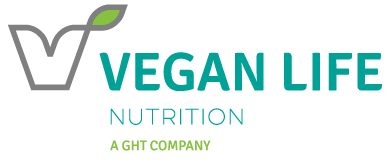There are 5 types of vegans. Which one are you?
Eating a plant-based diet is gaining traction around the world as research helps us to understand the health benefits associated with going meatless. But veganism isn’t a one-size-fits-all proposition. People have different reasons for becoming a vegan and different ways to approach the diet. Rather than one single definition, there are different types of vegans.
Research published in a recent medical journal also supports the idea of different diets for different people. “Physicians should advocate that it is time to get away from terms like vegan and vegetarian and start talking about eating healthy, whole, plant-based foods (primarily fruits and vegetables) and minimizing consumption of meat, eggs and dairy products.”F1 The study concludes that rather than adhering to a rigid set of dietary standards, doctors should recommend a diet that is tailored to each individual’s needs.

The list
We’ve identified five types of vegans that are defined by both why and how people define veganism.
– Ethical Vegans: Among the most common reasons for not consuming meat is compassion for animals. Ethical Vegans also strive to choose products, such as cosmetics and clothing, that are not tested on or derived from animals.
– Plant-Based Diet Vegans: Some people choose this diet for the numerous health benefits, including weight loss.
– Raw Vegans: Choosing to eat raw foods can be driven by the belief that cooking removes some of the nutrients.
– HCLF Vegans: High carb low fat vegans eat huge amounts of foods like fruits, veggies and grains and as little fat as they can manage.
– Environmentally Conscious Vegans: One of the most pressing reasons to choose veganism is how destructive animal farming is to the planet. “Animal agriculture is the second largest contributor to human-made greenhouse gas (GHG) emissions after fossil fuels and is the leading cause of deforestation, water and air pollutants and biodiversity loss.”2

Dual purpose veganism?
Although people have different reasons for becoming a vegan, many don’t fit squarely into one of the types of vegans listed above. Instead, they’ve made this lifestyle choice out of a preponderance of evidence regarding benefits to themselves, animals, and the planet. There are so many advantages to eating a plant-based diet that the number of people choosing veganism is growing rapidly.
Like any big change, it’s important to go about this thoughtfully. Take the time to educate yourself on how to replace nutrients you have been getting from meat and dairy with plant options. One of the side effects of going vegan cold turkey is not having enough information on how to get the RDA of all the vitamins and minerals you need.
Many vegans utilize supplements to replace nutrients that are difficult to get in plants alone, such as vitamin B12. This is why Vegan Life Nutrition was developed; to provide plant-sourced supplements that can be deficient in a vegan diet.
Don’t let social distancing weaken your immune system.
Immune System Boosters: / 25% Off
References
1 Nutritional Update for Physicians: Plant-Based Diets , National Center for Biotechnology Information Resources | The Permanent Journal.
2 Animal Agriculture’s Impact on Climate Change , ClimateNexus.org.
NOTE: The Ncbi.nlm.nih.gov | Journal Lisa | Perm J., and Climatenexus.org, have not reviewed or approved the above article.
